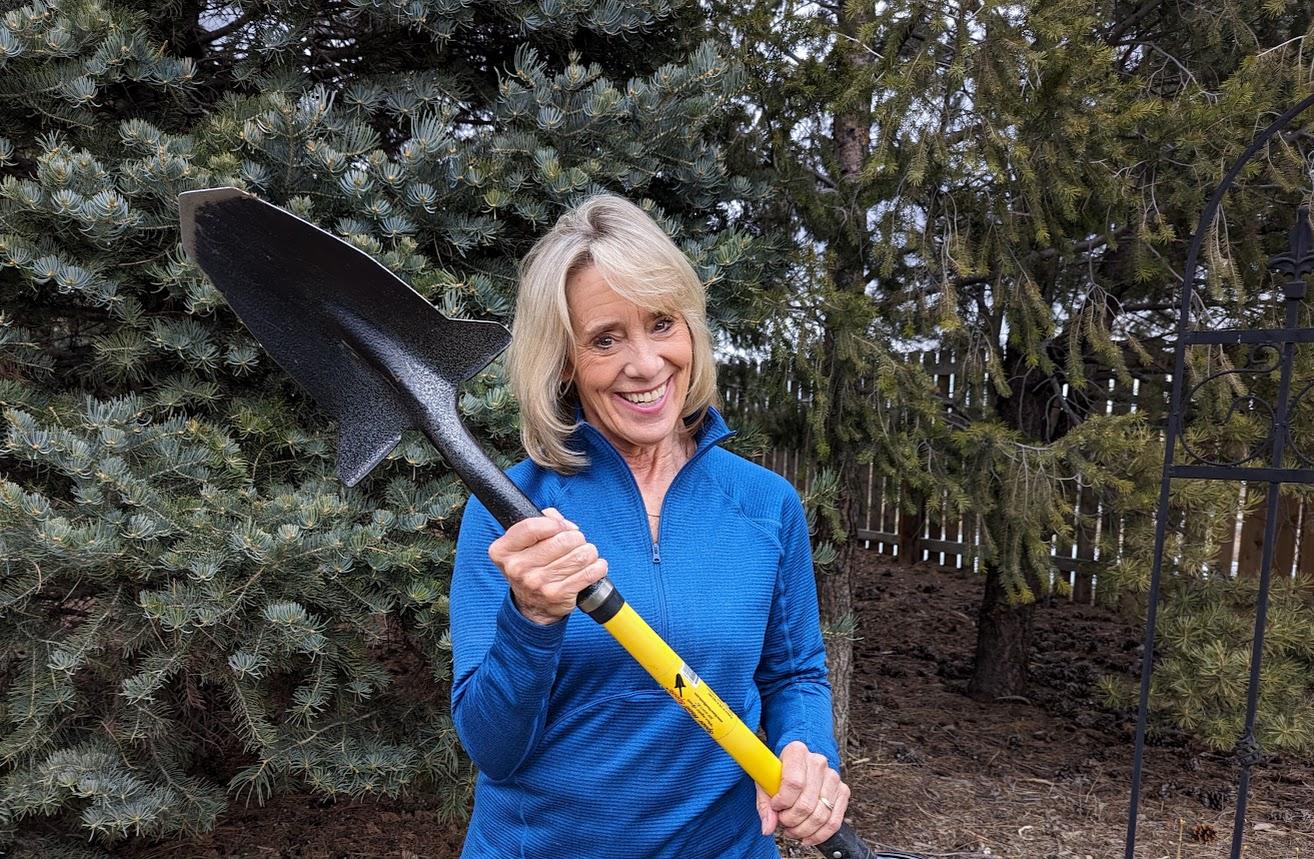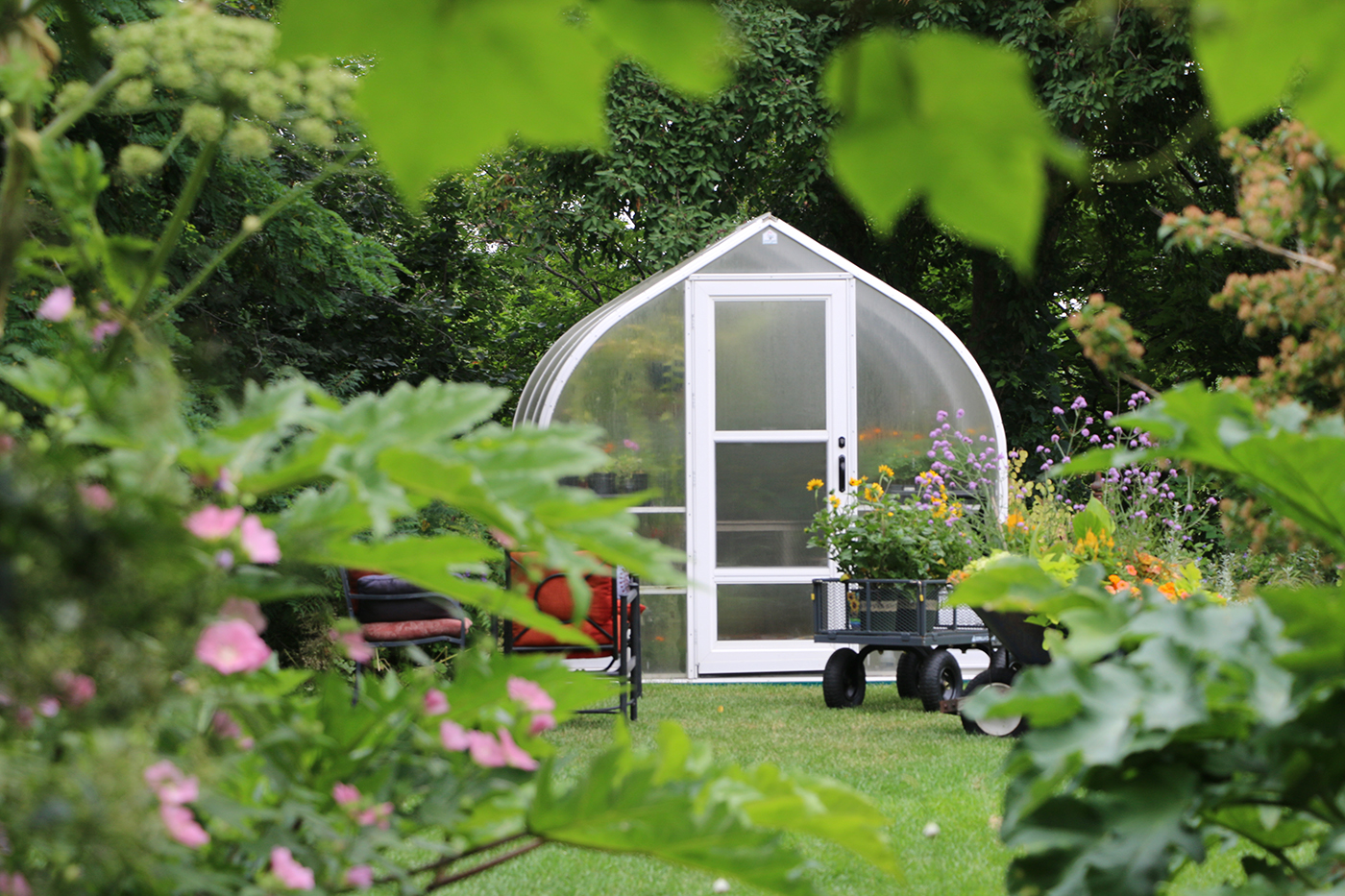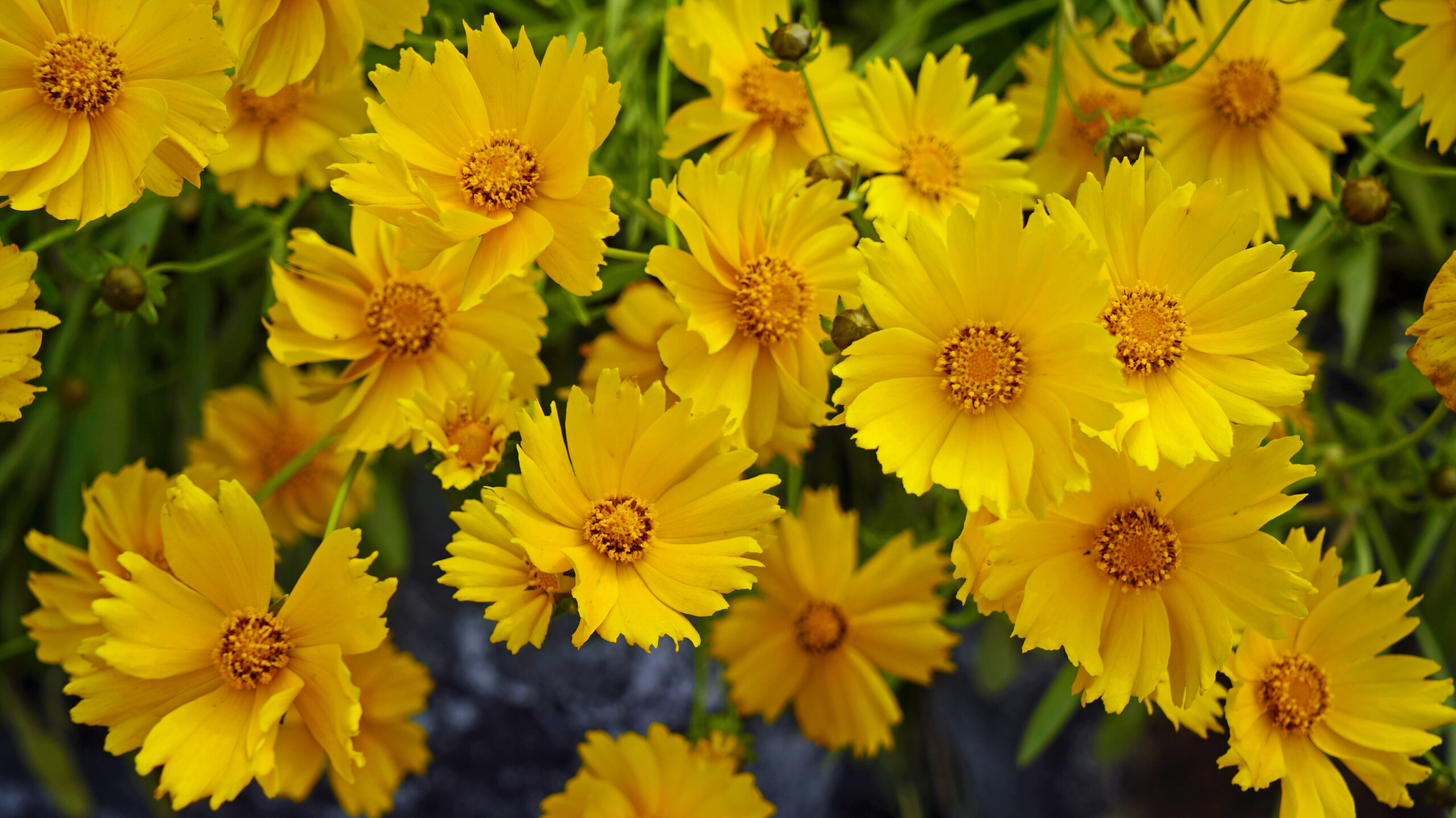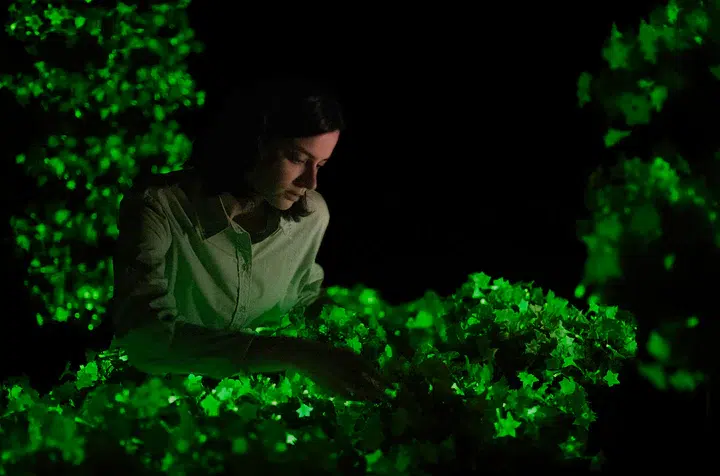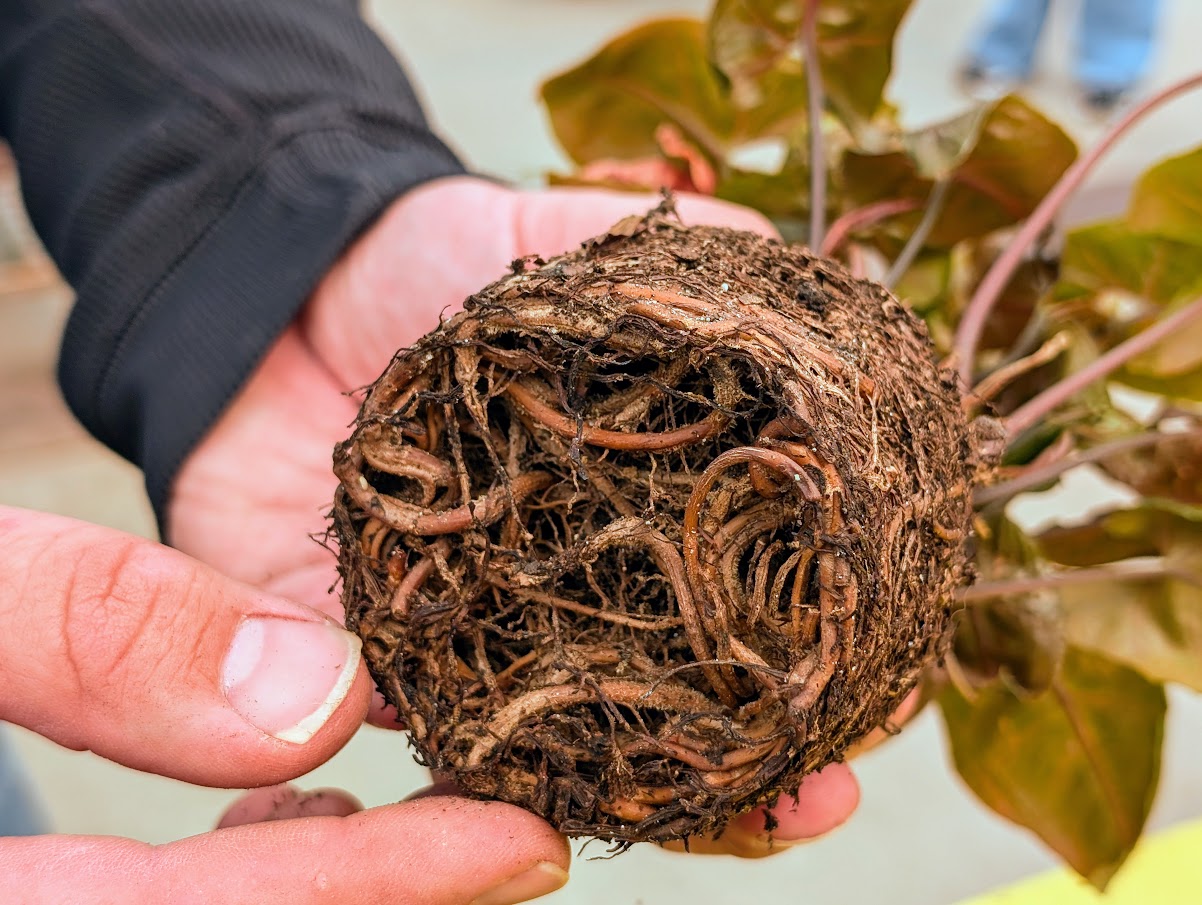I’m pretty easy-going by nature, but do not get between me and my Spear Head spade! I discovered this remarkable tool a few years ago and haven’t used another shovel since. It’s changed the way I garden.
The makers of the Spear Head spade call it a hybrid, combining the best features of a spade and a shovel. A traditional spade is fairly flat, designed mainly for cutting straight lines, digging trenches, or shaping borders and lawns. A shovel is more curved and generally used for digging and lifting. The Spear Head spade takes both features and adds a triangular pointed tip to make working in heavy or rocky soil a lot easier.
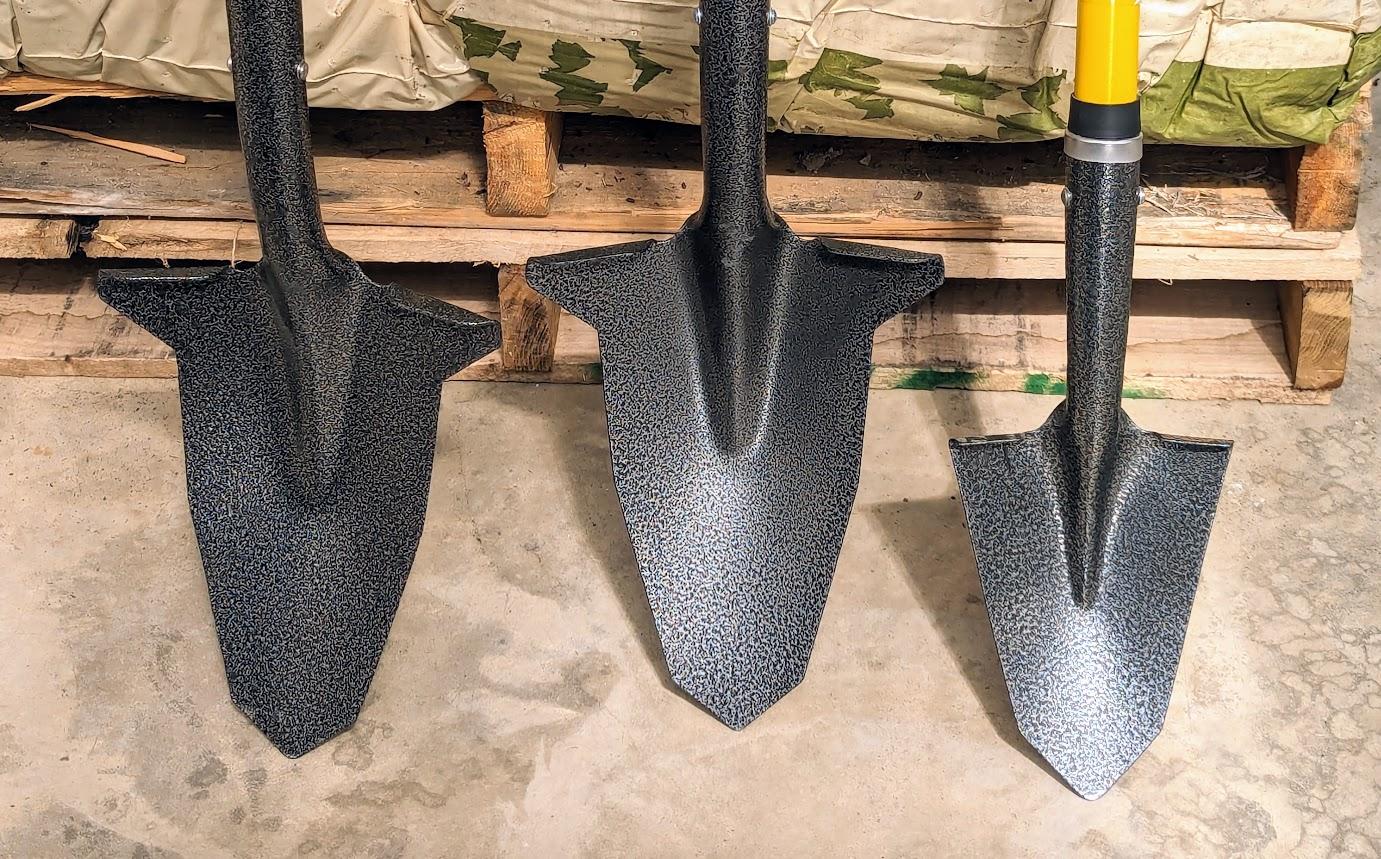
As shown above, this tool also has a lip at the top of the blade that converts the user’s foot pressure into digging power. The company claims that it makes digging 80% easier. I’m not sure how they compute that, but I tend to agree.
The Spear Head comes in a variety of lengths, ranging from 30″ to 58″ tall. The 40″ is perfect for me.
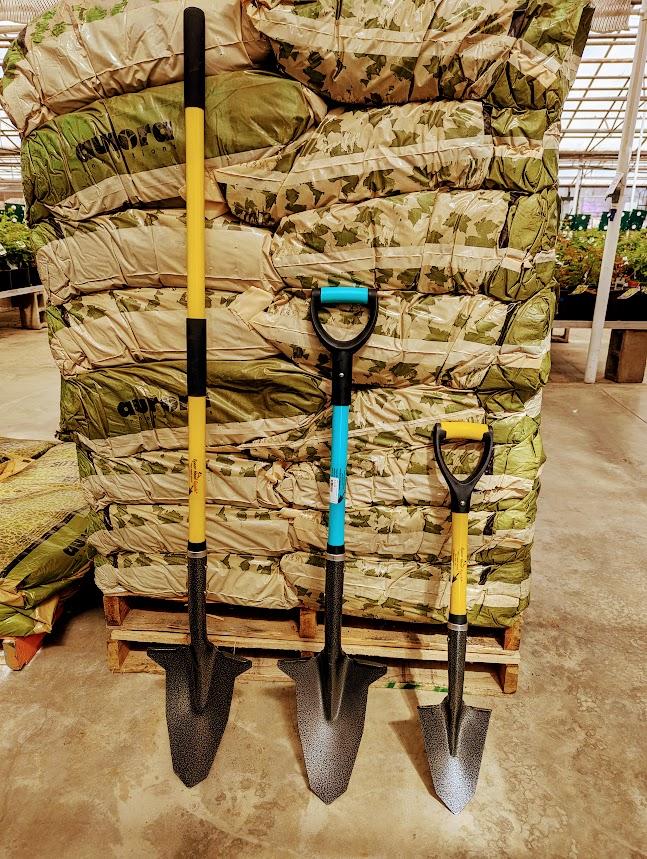
If you’re thinking about shrinking your lawn or maybe you’re finding the whole process of digging less appealing over time, this tool is well worth a look.
There’s a new compost in town
Espoma “Land and Sea” is described as “gourmet compost.” Espoma is one of the largest suppliers of organic fertilizers in the country and is often cited with glowing praise on social media.
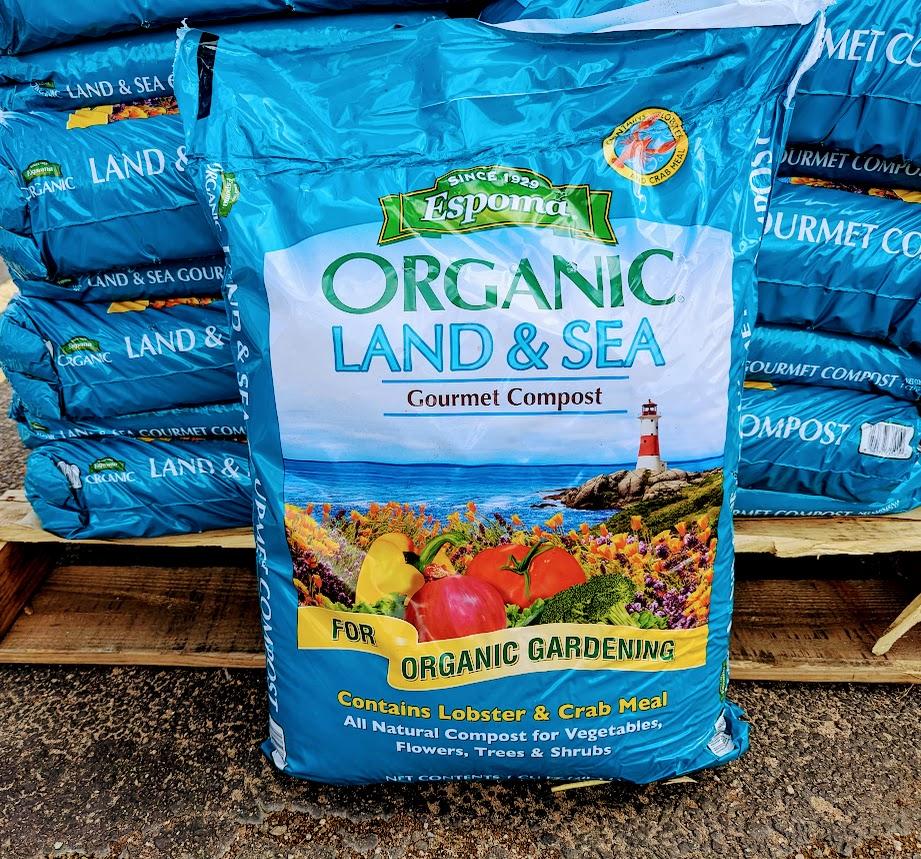
John, Tagawa’s Hard Goods Supervisor, says he’s been getting so many requests for this compost that he decided to bring in a supply to see what our guests think.
Land and Sea ingredients include lobster and crab shells crushed into meal. That provides a type of stable nitrogen that doesn’t leach into waterways as many other forms of nitrogen do. The compost also includes a form of mychorrizae, a naturally occurring fungi that the suppliers say “helps make plant roots stronger, promotes bigger blooms and reduces the plant’s need for water.”
John and the rest of our Garden Advisors are anxious to hear what our guests think.
Want to get a jump on the weeds?
Many of our Garden Advisors say now is the time to be putting down pre-emergent to inhibit weeds that can become a challenge as the season progresses. It’s the type of garden chore that can easily be overlooked until it’s too late.
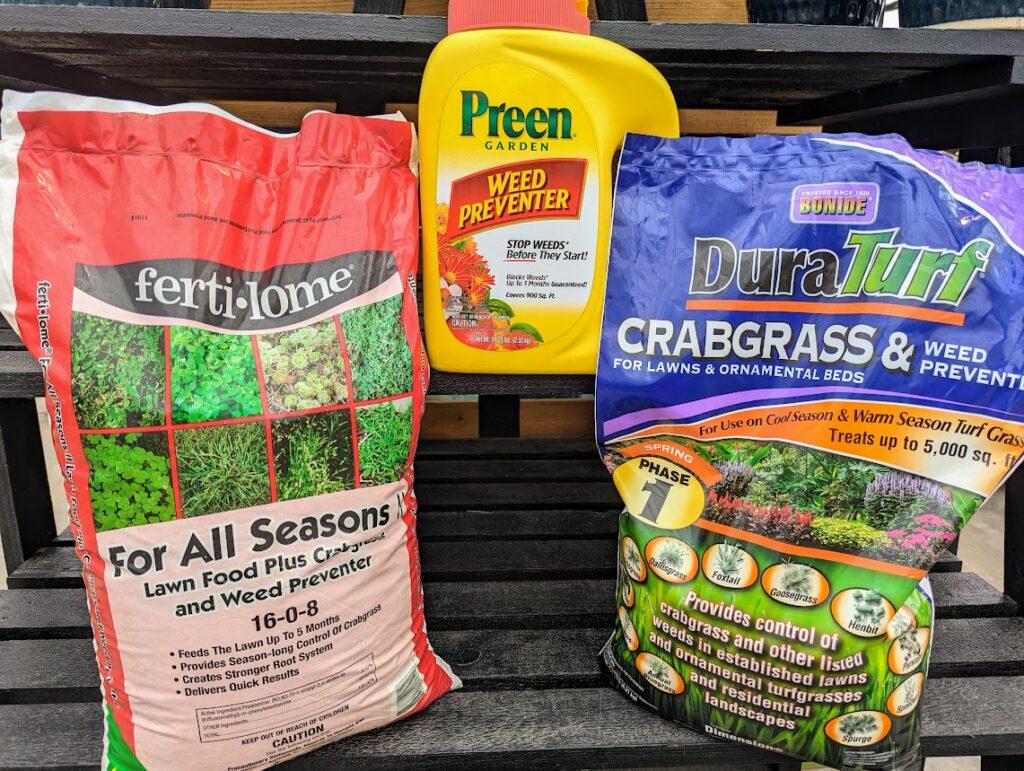
Pre-emergent or weed preventers use different compounds to create a germination barrier for seeds below the surface of the soil. Used as directed, crab grass preventers can be applied with a drop spreader over established lawns to keep crab grass and other weeds from germinating. There’s also a weed preventer designed specifically to suppress weeds in garden beds and borders without harming any desired plants already growing there.
Once the products have been applied and watered in as directed, it’s essential to remember that any digging or disturbance of the soil can break the germination barrier and reduce the effectiveness of the product. You may find that this extra bit of care is well worth fighting fewer weeds once the season is up and running.
And for the houseplant lovers in the crowd…
If you’re a hard-core plant parent, you might be interested in a brand new specialty soil on the shelves at Tagawa’s. It’s called “Rosy Soil” indoor potting mix. Its creators say their mission is to nurture “the soil, the plant and the planet.” Their most prominent claim to fame is that Rosy soil contains no peat moss. Most garden soil mixes include peat, but harvesting it from bogs created more than 10,000 years ago is an increasingly controversial topic and is considered by many to be environmentally unsustainable.
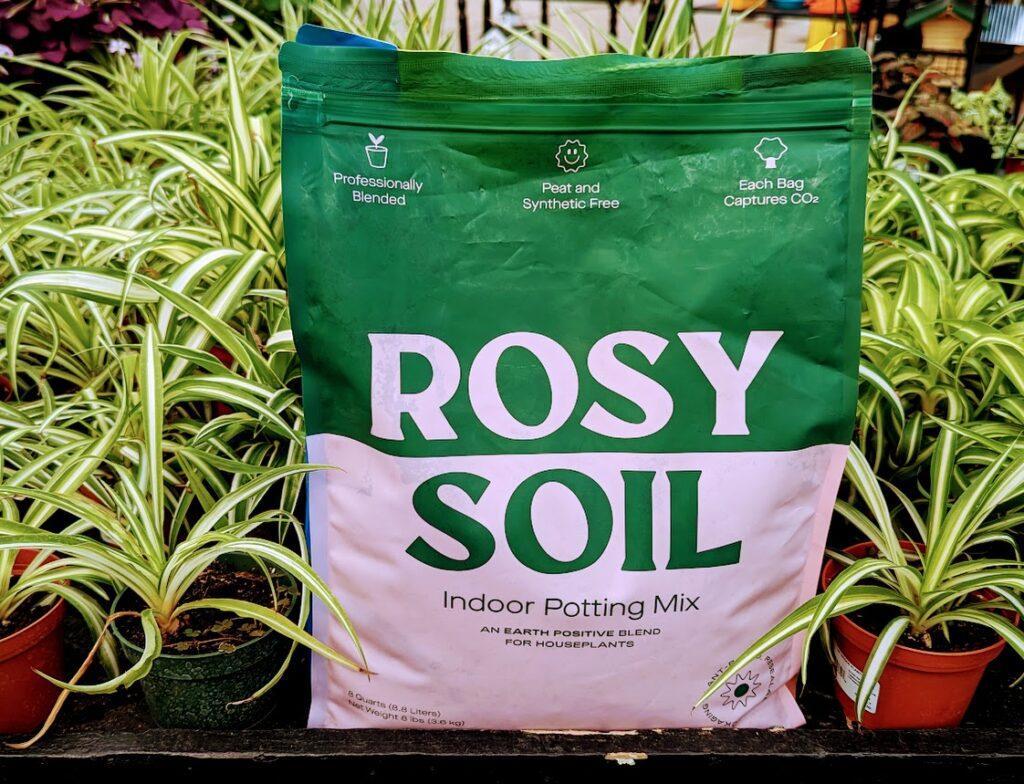
Rosy Soil has only naturally-occurring ingredients including biochar, a form of carbon created by heating leftover plant residue. That material would otherwise be burned in fields or discarded as trash. Even the Rosy bag is earth-friendly, made of recyclable rice hull husks.
If Rosy Soil sounds interesting, come talk to our Garden Advisors and see if it makes sense to treat your houseplants to this upscale mix.
